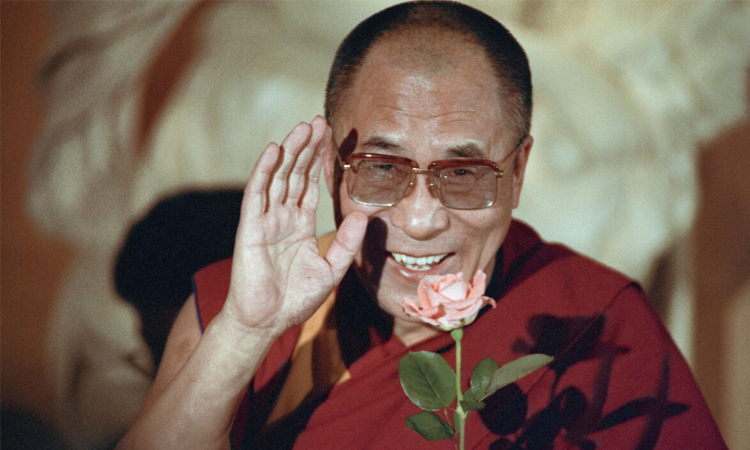News Flash
News Flash

NEW DELHI, March 11, 2025 (BSS/AFP) - The Dalai Lama published a book Tuesday
he says is a "framework for the future of Tibet", to guide compatriots in
relations with Beijing after his death.
China says Tibet is an integral part of the country, and many exiled Tibetans
fear Beijing will name a successor to the Dalai Lama when he dies, bolstering
control over a land it poured troops into in 1950 -- 75 years ago this coming
October.
The book, "Voice for the Voiceless", describes the Dalai Lama dealing with
successive leaders of the People's Republic of China on behalf of Tibet and
its people.
"The right of the Tibetan people to be the custodians of their own homeland
cannot be indefinitely denied, nor can their aspiration for freedom be
crushed forever through oppression," the exiled Tibetan spiritual leader
writes.
"One clear lesson we know from history is this: If you keep people
permanently unhappy, you cannot have a stable society."
Tibet has alternated over the centuries between independence and control by
China, which says it "peacefully liberated" the rugged plateau and brought
infrastructure and education.
Celebrating his 90th birthday in July, he is among a fading few who can
remember what their homeland was like before the 1959 uprising.
The Dalai Lama, who fled to India in 1959, said the book details the
"persistent efforts" he has made to over seven decades to "save my homeland
and people".
"Only when we have created an atmosphere where both sides can speak and
negotiate freely can there be a lasting settlement," he writes in the book.
"Tibetans have spent nearly 75 years fighting for freedom," the Dalai Lama
wrote in the Washington Post earlier this month, ahead of the book's
publication.
"Their struggle should continue beyond my lifetime."
- 'Peaceful resolution' -
Talks between Beijing and Tibetan leaders have been frozen since 2010.
"Despite all the suffering and destruction, we still hold fast to the hope
for a peaceful resolution of our struggle for freedom and dignity," the Dalai
Lama said in a statement about the book.
"From a 19-year-old negotiating with Chairman Mao at the height of his powers
in Beijing to my recent attempts to communicate with President Xi Jinping, I
convey in this book the sincerity of our efforts.
"My hope is that the book will... provide a framework for the future of Tibet
even after I am gone."
The Dalai Lama stepped down as his people's political head in 2011, passing
the baton of secular power to a government chosen democratically by some
130,000 Tibetans around the world.
Penpa Tsering, the sikyong or head of that government, has said it does not
seek full independence for Tibet, but rather to pursue a long-standing
"Middle Way" policy seeking greater autonomy.
China calls the India-based Tibetan administration a "puppet government".
But the Dalai Lama said any resolution had to involve talks in which each
side can talk openly.
"One thing is for sure: no totalitarian regime, whether headed by an
individual or a party, can last forever, because they abuse the very people
they claim to speak for," he adds.